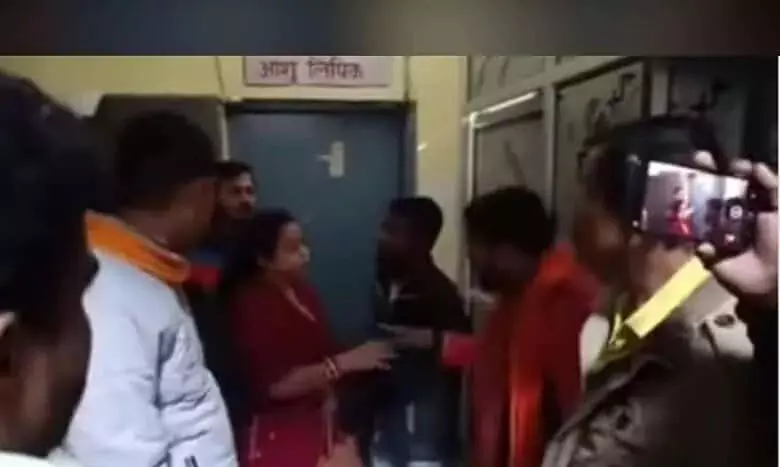
Interfaith couples harassed by right-wing groups in UP and Madhya Pradesh
text_fieldsTwo incidents of harassment targeting interfaith couples in Uttar Pradesh and Madhya Pradesh have drawn attention to the ongoing challenges posed by right-wing vigilante groups and their impact on personal freedoms in India. These episodes highlight the growing scrutiny and violence interfaith relationships face in an increasingly polarised society.
In Uttar Pradesh’s Basti district, members of the Hindutva-affiliated Vishva Hindu Mahasangh targeted a Hindu woman who had recently married a Muslim man. The group accused her of falling victim to “Love Jihad,” a conspiracy theory that alleges Muslim men strategically lure non-Muslim women into relationships to convert them to Islam.
The group, led by Akhilesh Singh and dressed in saffron scarves, confronted the woman, demanding proof of her identity and questioning the legality of her marriage, Siasat reported.
Despite the woman’s repeated explanations that the marriage was legal and consensual, the group persisted, insisting on contacting her parents for confirmation. A video of the incident, widely shared on social media, shows the woman defending her right to choose her partner while the group continued to harass her. This incident underscores the increasing pressure interfaith couples face under the pretext of combating the so-called “Love Jihad.”
A similar incident occurred on December 27 in Bhopal, Madhya Pradesh, where a Muslim youth was assaulted by Hindutva members while accompanying his Hindu friend. The group accused him of engaging in “Love Jihad” and demanded police action against him.
When the authorities refused to register a case, the mob staged a protest outside the police station, chanting slogans accusing the administration of corruption and threatening those they deemed supporters of interfaith relationships.
These incidents reflect a worrying trend of vigilante violence and public intrusion into personal lives. Vigilante groups frequently invoke “Love Jihad” as justification for their actions, subjecting interfaith couples to harassment, intimidation, and violence. The phenomenon undermines fundamental rights guaranteed by the Constitution of India, particularly the right to choose one’s partner.
Recent judicial rulings, such as a Bombay High Court decision earlier this month, have reaffirmed these rights. In that case, the court upheld a Hindu woman’s right to live with her Muslim partner despite opposition from her family and right-wing groups, emphasising the autonomy of adults in choosing their relationships.






















